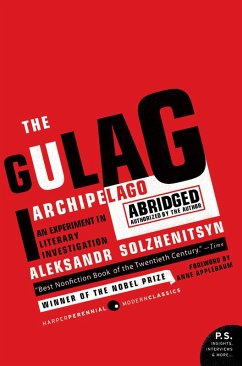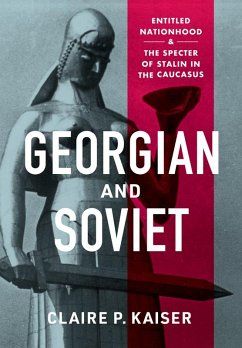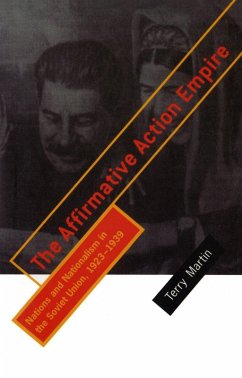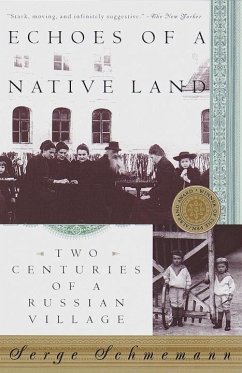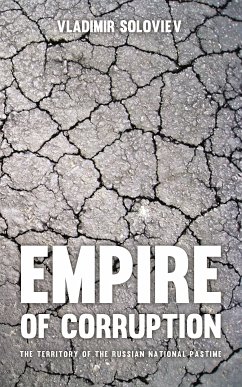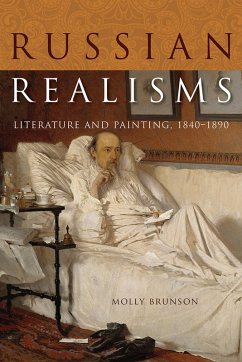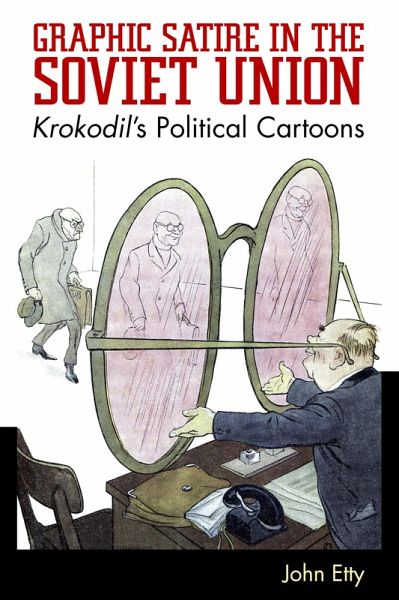
Graphic Satire in the Soviet Union (eBook, ePUB)
Krokodil's Political Cartoons
Versandkostenfrei!
Sofort per Download lieferbar
16,95 €
inkl. MwSt.
Weitere Ausgaben:

PAYBACK Punkte
8 °P sammeln!
After the death of Joseph Stalin, Soviet-era Russia experienced a flourishing artistic movement due to relaxed censorship and new economic growth. In this new atmosphere of freedom, Russia's satirical magazine Krokodil (The Crocodile) became rejuvenated. John Etty explores Soviet graphic satire through Krokodil and its political cartoons. He investigates the forms, production, consumption, and functions of Krokodil, focusing on the period from 1954 to 1964.Krokodil remained the longest-serving and most important satirical journal in the Soviet Union, unique in producing state-sanctioned graphi...
After the death of Joseph Stalin, Soviet-era Russia experienced a flourishing artistic movement due to relaxed censorship and new economic growth. In this new atmosphere of freedom, Russia's satirical magazine Krokodil (The Crocodile) became rejuvenated. John Etty explores Soviet graphic satire through Krokodil and its political cartoons. He investigates the forms, production, consumption, and functions of Krokodil, focusing on the period from 1954 to 1964.
Krokodil remained the longest-serving and most important satirical journal in the Soviet Union, unique in producing state-sanctioned graphic satirical comment on Soviet and international affairs for over seventy years. Etty's analysis of Krokodil extends and enhances our understanding of Soviet graphic satire beyond state-sponsored propaganda.
For most of its life, Krokodil consisted of a sixteen-page satirical magazine comprising a range of cartoons, photographs, and verbal texts. Authored by professional and nonprofessional contributors and published by Pravda in Moscow, it produced state-sanctioned satirical comment on Soviet and international affairs from 1922 onward. Soviet citizens and scholars of the USSR recognized Krokodil as the most significant, influential source of Soviet graphic satire. Indeed, the magazine enjoyed an international reputation, and many Americans and Western Europeans, regardless of political affiliation, found the images pointed and witty. Astoundingly, the magazine outlived the USSR but until now has received little scholarly attention.
Krokodil remained the longest-serving and most important satirical journal in the Soviet Union, unique in producing state-sanctioned graphic satirical comment on Soviet and international affairs for over seventy years. Etty's analysis of Krokodil extends and enhances our understanding of Soviet graphic satire beyond state-sponsored propaganda.
For most of its life, Krokodil consisted of a sixteen-page satirical magazine comprising a range of cartoons, photographs, and verbal texts. Authored by professional and nonprofessional contributors and published by Pravda in Moscow, it produced state-sanctioned satirical comment on Soviet and international affairs from 1922 onward. Soviet citizens and scholars of the USSR recognized Krokodil as the most significant, influential source of Soviet graphic satire. Indeed, the magazine enjoyed an international reputation, and many Americans and Western Europeans, regardless of political affiliation, found the images pointed and witty. Astoundingly, the magazine outlived the USSR but until now has received little scholarly attention.
Dieser Download kann aus rechtlichen Gründen nur mit Rechnungsadresse in A, D ausgeliefert werden.




